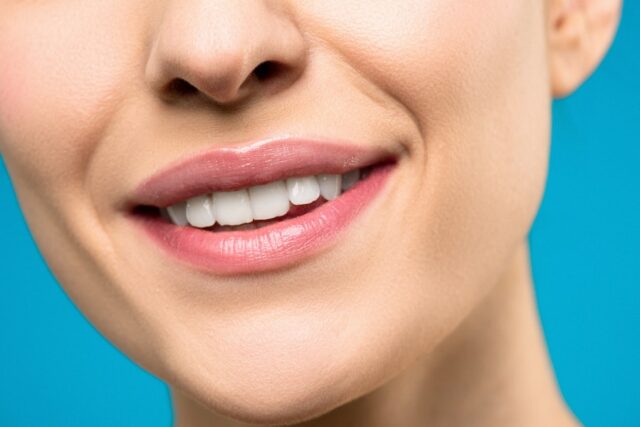Our teeth, the hard, white structures in our mouths, serve a vital role beyond just bestowing us with beautiful smiles. They play a crucial part in our day-to-day lives, assisting in essential tasks such as chewing food, aiding speech, and maintaining facial structure. Our teeth are the primary contact point between our bodies and most of the nutrients we consume. This makes them the frontline defenders of our oral health, constantly exposed to potential harm from bacteria and acids in our food and drink. Like any other part of our body, our teeth require diligent care, maintenance, and regular check-ups. Neglecting dental health can lead to a host of problems, from tooth decay to gum diseases, and can even impact our overall health. It is our responsibility to take care of our teeth, understanding their importance and adopting a comprehensive dental hygiene routine to ensure their longevity and function.
Regular Dental Check-Ups
Visiting your dentist regularly for cleanings and check-ups can identify potential issues early and keep your teeth healthy. It is recommended to schedule dental appointments every six months, or more if advised by your dentist. During these visits, the dentist will thoroughly clean your teeth, check for any signs of decay or disease, and provide necessary treatments such as fillings or root canals. Regular check-ups also include X-rays, which help detect problems that may not be visible on the surface. Whether you want to get dental crowns in Denver or just need a routine check-up, it is essential to prioritize these visits for the overall health of your teeth. Furthermore, regular cleanings remove plaque build-up, preventing tooth decay and gum disease. For example, if left untreated, plaque can harden into tartar, which cannot be removed by brushing and flossing alone and requires professional cleaning.
Brush Your Teeth Twice Daily
Brushing your teeth in the morning and before bed aids in removing plaque and food particles that accumulate throughout the day. When bacteria in the mouth interact with food particles, they produce acids. These acids attack the teeth’s enamel, leading to tooth decay and cavities. By brushing your teeth twice a day, you can reduce plaque build-up and maintain healthier teeth. It is recommended to use fluoride toothpaste as it strengthens the enamel and protects against acid attacks. However, brushing too aggressively or using a hard-bristled toothbrush can also harm the teeth’s enamel and gums, so it is essential to use gentle, circular motions while brushing. The vast majority of toothbrushes are effective in removing plaque, so it is not necessary to use excessive force.
Floss Daily
Flossing reaches between your teeth where a toothbrush can’t, removing leftover food particles and plaque. It not only cleans your teeth but also stimulates the gums, reducing the risk of gum disease. Flossing once a day, preferably before brushing, can significantly improve your dental health. It is recommended to use about 18 inches of floss, wrapping it around your fingers and gently sliding it between teeth in a C-shaped motion. Avoid snapping the floss, which can harm gums and lead to bleeding. Flossing also helps prevent bad breath, as bacteria and food particles between teeth can contribute to foul odors. Most importantly, flossing is an essential part of maintaining healthy gums, which are the foundation for strong and healthy teeth.
Limit Sugary Foods And Drinks
High-sugar diets can lead to tooth decay, as bacteria in your mouth convert the sugar into acid that erodes enamel. Limiting sugary foods and drinks such as soda, candy, and snacks can significantly improve your dental health. If you do indulge in these treats, make sure to brush your teeth afterward to reduce the acid’s effects on enamel. It is also essential to drink plenty of water throughout the day to rinse away any food particles or acids that may be present in your mouth. For example, drinking water after a meal can help wash away any remaining sugars or acids and reduce the risk of tooth decay. On the other hand, daily intake of sugary drinks and snacks can lead to an increased risk of cavities, so it is crucial to limit these foods for the sake of your teeth’s health.
Avoid Tobacco Products
Smoking and chewing tobacco can stain teeth, cause gum disease, and lead to oral cancer. Not only are tobacco products harmful to your overall health, but they also have severe consequences on your dental health. Smoking and using other tobacco products can make it harder to remove plaque and tartar, leading to tooth decay and gum disease. It is essential to quit or avoid using all forms of tobacco for the sake of your oral health. Furthermore, smoking and other tobacco products can also cause bad breath, stain teeth, and even cause tooth loss. By avoiding tobacco, you are not only improving your oral health but also protecting yourself against a host of potential health issues.
Drink Plenty Of Water
Water helps rinse away food particles and neutralizes acidic environments in the mouth. It also helps prevent dry mouth, a condition that can lead to bad breath, tooth decay, and gum disease. Drinking water throughout the day is essential for maintaining your oral health. It is also recommended to drink fluoridated water as it can help strengthen enamel and prevent tooth decay. Staying hydrated with plenty of water can reduce your risk of dental issues and keep your teeth strong and healthy.
Replace Your Toothbrush Regularly
Toothbrushes should be replaced every three to four months or sooner if the bristles are worn out. Old toothbrushes are less effective in removing plaque and can even harbor bacteria, leading to potential health risks. It is also recommended to replace your toothbrush after an illness to prevent bacteria from lingering on the bristles. Using a new toothbrush regularly ensures that you’re properly cleaning your teeth and maintaining good oral hygiene. Many toothbrushes have indicators that signal when it is time for a replacement, but if you notice the bristles are frayed or splayed, it’s time to get a new one.
Improving the health of your teeth requires regular dental appointments, proper brushing and flossing techniques, healthy dietary choices, avoiding tobacco products, drinking plenty of water, and replacing your toothbrush regularly. By following these practices, you can maintain strong and healthy teeth for a lifetime. Remember to prioritize your dental health and make it a part of your overall wellness routine. Your smile will thank you! Stay educated on the latest advancements in dental care, and don’t hesitate to consult with your dentist for any concerns or questions about improving the health of your teeth.














